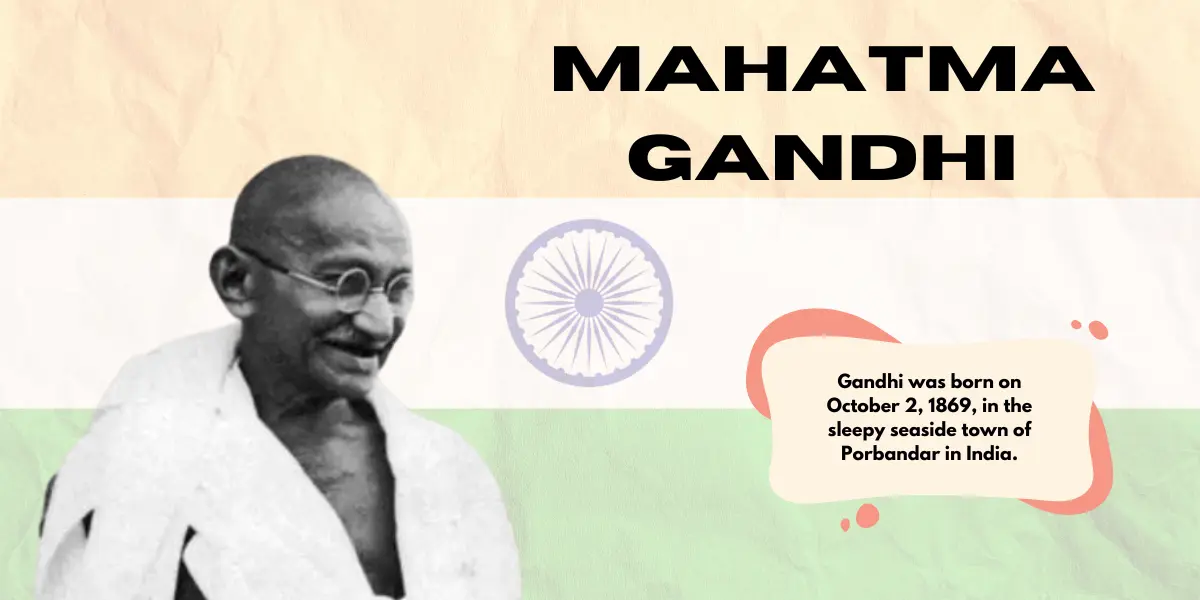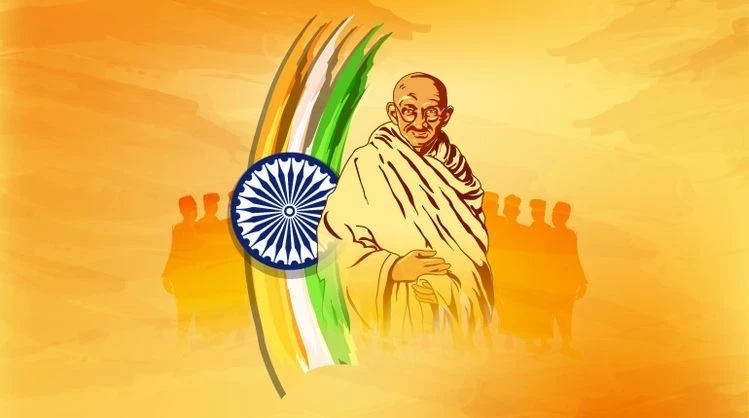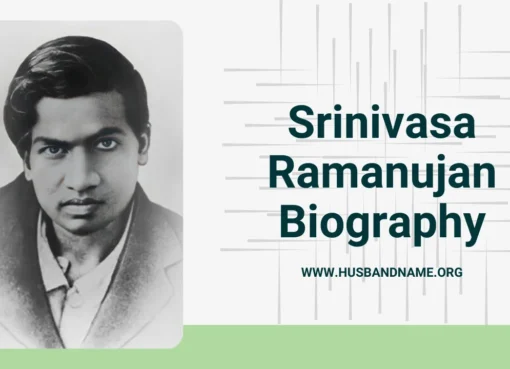Mahatma Gandhi Biography: Family, Education, History & Interesting Facts

“Our greatest ability as humans is not to change the world, but to change ourselves.”
The quote mentioned above was said by a great freedom fighter, inspirational leader, and Father of the nation Mohandas Karamchand Gandhi—a person who is known for his policy of truth and non-violence.
Mahatma Gandhi, a name that means peaceful opposition as well as moral courage, turned world history through his remarkable foresight and unwavering principles. Gandhi was born on October 2, 1869, in the sleepy seaside town of Porbandar in India. He rose from humble origins to become one of the most venerated personalities of the twentieth century.
This memoir takes us on a journey into the life of a man whose convictions on peace and worth have continued to inspire global movements for change. From his early struggles in South Africa to his transformative leadership in India, the legacy of Mahatma Gandhi is a beacon of hope, showing the immense power of peaceable action and the continued pursuit of a better world. In this article, we will have complete information on Mahatma Gandhi biography.
| People Too Ask Q. Who gave the Mahatma title? Ans:- Gandhi is moreover known as “Mahatma” and “Father of the Nation”. The title “Mahatma” was granted to him by Rabindranath Tagore. |
Also Read:- Rohit Sharma Biography || Ruskin Bond Biography || Shehzaan Khan Dancer Biography
Early Life Of Mahatma Gandhi
Two October 1869, Mohandas Karamchand Gandhi was born in Porbandar, Gujarat (in western India). The Diwan of Porbandar State Gurjrat was Karamchand Gandhi his father. The fourth wife of Karamchand was Putli Bai, Gandhi’s mother. Growing up in a Hindu family, he lived his life on a vegetarian diet alongside adopting some fasting practices for self-purification purposes.
Kasturba, who was one year older, got married to him when he was 13 years old. In 1885, Kasturbai delivered their first son who died after a few days. Later on, they had four children. Gandhi was an average student during his schooling years and passed the registration exam of Samaldas College, Gujarat without much difficulty. On 4th September 1888, he traveled to Britain to consider law at the College College London and to prepare as an attorney, as his family needed him to be a barrister.
Mahatma Gandhi Biography
| Famous as | For His Philosophy of Truth and Non-violence |
| Nationality | Indian |
| Religion | Hinduism |
| Born on | 02 October 1869 AD |
| Zodiac Sign | Libra |
| Born in | Porbandar, Kathiawar Agency, British Indian Empire |
| Died on | 30 January 1948 AD |
| Place of death | New Delhi, Dominion of India |
| Epitaphs | Hey Ram |
| Father | Karamchand Gandhi |
| Mother | Putlibai Gandhi |
| Spouse | Kasturba Gandhi |
| Children | Harilal, Manilal, Ramdas, Devdas |
| Education | University College London, Alfred High School |
| Works & Achievements | Key Role in Indian Freedom Struggle, Philosophy of Truth and Non-violence |
| Awards | 1930 – Man of the Year by Time magazine |
Return to India and the Freedom Movement

In 1915, Gandhi came back to India and initiated his participation in the Indian liberation movement. He swiftly became prominent because of his innovative methods of political activism as well as being able to rally large numbers of people to his side.
Also Read:- Ella D. Verma Net Worth || Phil Ivey Net Worth || Orry Net Worth
Key Movements:
Gandhi led powerful campaigns in Champaran (Bihar) and Kheda (Gujarat) against oppressive British regulations and financial exploitation. These early victories established his reputation as a leader who seemed to achieve victory through non-violent means.
Non-Cooperation Development (1920-1922): The Non-Cooperation Movement was spearheaded by Gandhi against British rule, urging Indians to withdraw from the British education system including schools, courts, and government offices. This movement received massive support but was halted when Gandhi withdrew the campaign after the violent incident at Chauri Chaura.
1930 Gandhi joined in Salt Walk: Gandhi’s determination led him to walk for 240 miles to get salt in the Middle Eastern Sea in defiance of British laws concerning salt. This revolt attracted much attention and gave a real boost to the Indian freedom struggle.
Quit India Development (1942): During World War II Gandhi started the Quit India movement to stop the British from ruling. The movement incorporated mass protests and mass arrests but also had a growing demand for complete independence.
Also Read:- Khan Sir Net Worth || Akshara Singh net Worth || Surpanakha Net Worth
Facts Almost Mahatma Gandhi
- According to Britannica, “The United Nations pronounced Gandhi’s birthday, October 2nd, as the Worldwide Day of Non-violence in 2007.”
- In 1883, at the delicate age of 13, Mohandas Gandhi’s life took a critical turn when he was orchestrated to wed Kasturba Makhanji, who was too 13 at the time.
- In 1930, the world observed with bated breath as India’s autonomy development picked up energy beneath the administration of Mahatma Gandhi. His immovable commitment to peaceful resistance, his charisma, and his capacity to mobilize millions made him the Individual of the Year by Time Magazine.
- A deep-rooted veggie-lover, Mr. Gandhi’s dinners centered on new vegetables, curd, natural products, seeds, and nuts.
| People Also Ask: Q. What are the controversial things about Gandhi? Gandhi never joined any political party during the last years of his life.Gandhi was planning to dissolve the Congress Party of India before his death. Gandhi was held in high regard by every leader of the time in India – Jinnah, Bose, and Gaffar Khan included, despite their political differences. |
Also Read:- Kajol Husband Name || Meenakshi seshadri Husband Name || Arunita Kanjilal Husband Name
Assassination of Mahatma Gandhi
Gandhi was killed on 30 January 1948 on the grounds of Birla House, Unused Delhi. The professional killer, Nathuram Godse, who had joined the radical Hindu gather Hindu Mahasabha shot him dead because he was against Gandhi’s sensitivity to Pakistan. Godse and his co-conspirator Narayan Apte were attempted and executed on 15 November 1949. Gandhi’s dedication in Rajghat, Modern Delhi bears his final words Hey Ram!
Legacy: Mahatma Gandhi’s impact amplifies distant past India. His logic of non-violence propelled worldwide figures such as Martin Luther Ruler Jr., Nelson Mandela, and Cesar Chavez. His life and lessons proceed to reverberate with those who advocate for quiet social change.
In the above article of Mahatma Gandhi biography, we got to know many new and interesting things about him. Gandhi’s persevering bequest lies in his capacity to change individual values into effective social development. His commitment to truth, non-violence, and equity remains a guide for activists and pioneers around the world. His birthday, October 2, is celebrated as Gandhi Jayanti in India and watched all-inclusive as the Worldwide Day of Non-Violence.
Also Read:- Hania Amir Husband Name || Shruti Haasan Husband || Pooja Bhatt Husband Name
FAQs:
Q1. What are the negative things about Mahatma Gandhi?
Two charges are leveled against Gandhi. He never talked about the freedom of Africans or included them in his development. And that he saw Africans as second-rate and looked to keep Indians partitioned from them. But unless he was welcomed to do so, the Mahatma never talked for any community of which he was not a member.
Q2. How long did Gandhi fast?
Mohandas Karamchand Gandhi embraced 18 fasts amid India’s opportunity development. His longest fasts kept going for 21 days. Fasting was a weapon utilized by Gandhi as a portion of his reasoning for Ahimsa (non-violence) as well as satyagraha.
Q3. Why is Gandhiji called the Father of the Nation?
He was known as the father of the Country, because of his commitment to Indian Freedom Development. Khilafat development, the Non-cooperation development, the Salt Walk, and the Stopped India development are the most well-known developments Mahatma Gandhi started amid the battle for freedom.




Leave a Comment